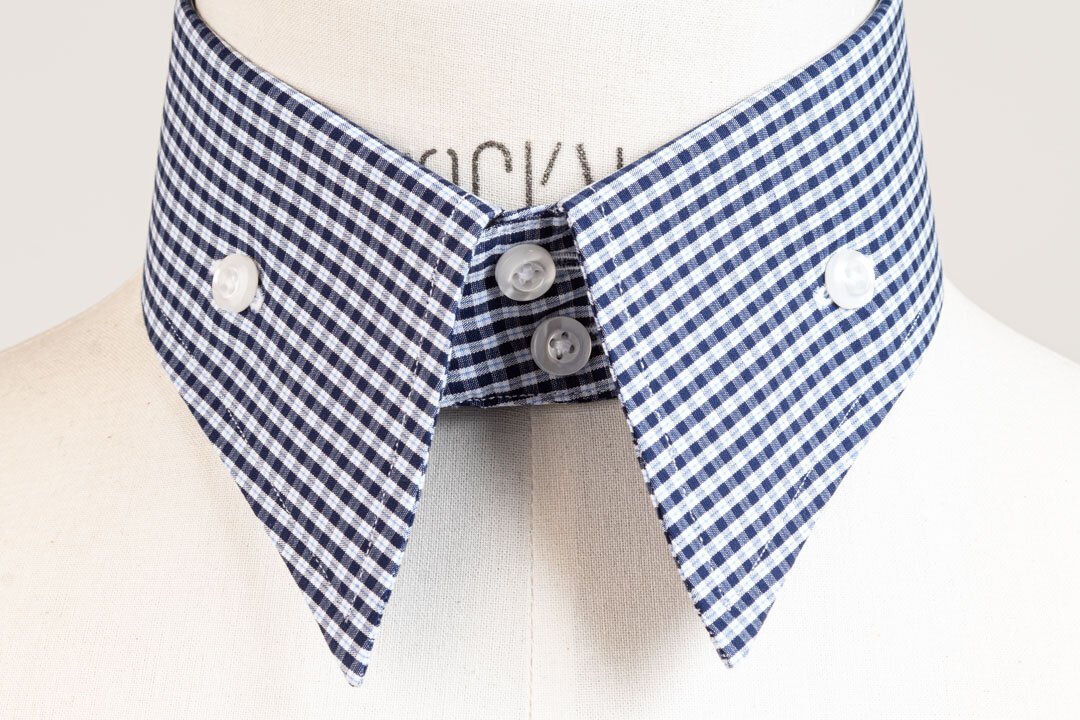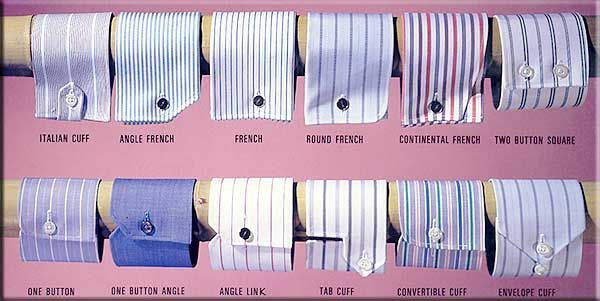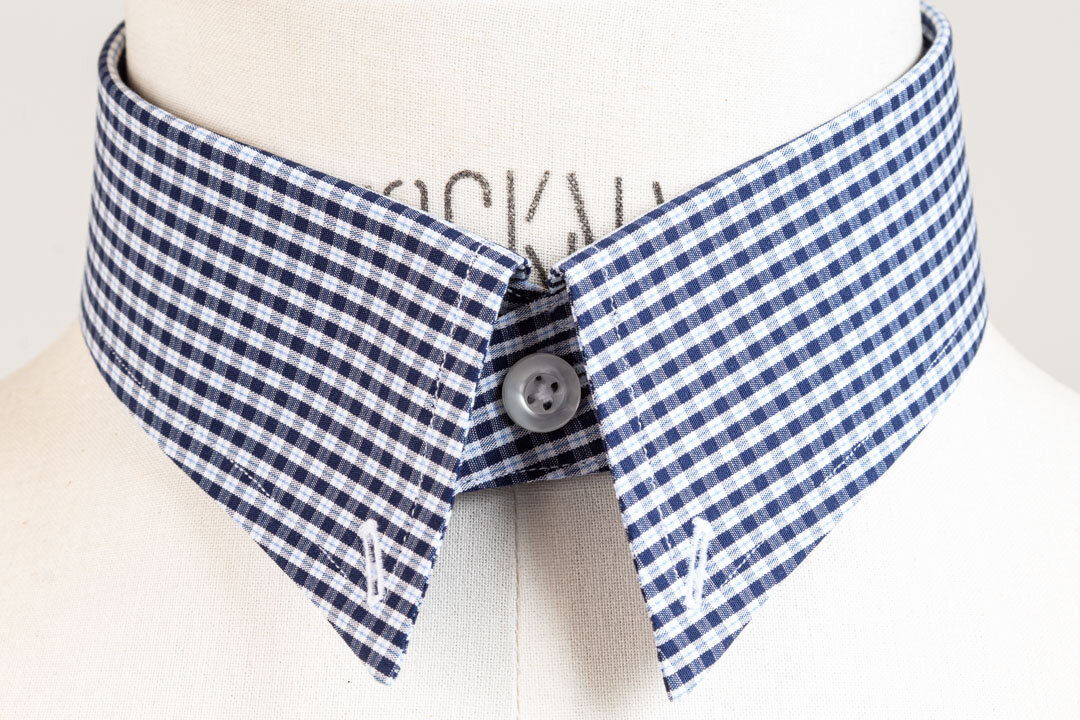The Prince of Wales is generally credited with introducing the tab collar to high society. Coming into its own during the late 1920s and early 1930s, it flirted briefly with fashion one again in the 1960s. Although its popularity has waned due to the inexorable casualization of male fashion, the tab collar remains a favourite of those seeking that extra nuance of nattiness.
The tab collar must be designed perfectly for the tie knot to rest comfortably in its opening. Special tabs fasten to each other under the tie’s knot to hold the collar’s points in place, thrusting the shirt collar and necktie knot higher up under the wearer’s chin. Long-necked men welcome the tab’s higher positioning, while the round- or square-shaped visage appreciates its longitudinal symmetry.
Originally, a special brass stud secured the collar to the neckband while connecting the collar tabs. Today, with pre-attached tab collar dress shirts, a snap or a button and buttonhole apparatus is usually substituted. However, as with most old-world wearables, the original brass stud still projects a more polished sophistication that its less visual modern surrogates.
Britain’s answer to the stylish supremacy of America’s Fred Astaire was their own tony thespian and hoofer Jack Buchanan. To be called a “Buchanan” was a compliment, suggesting the recipient knew his way around a fitting room. And this Buchanan guy could outfit himself with the best of them.











